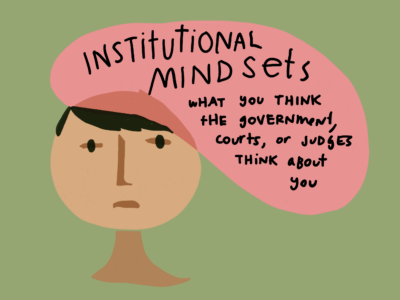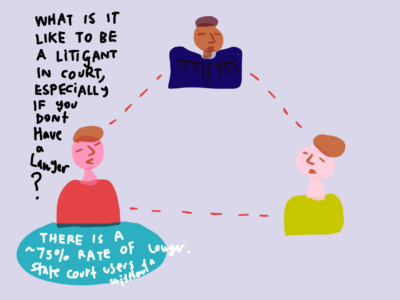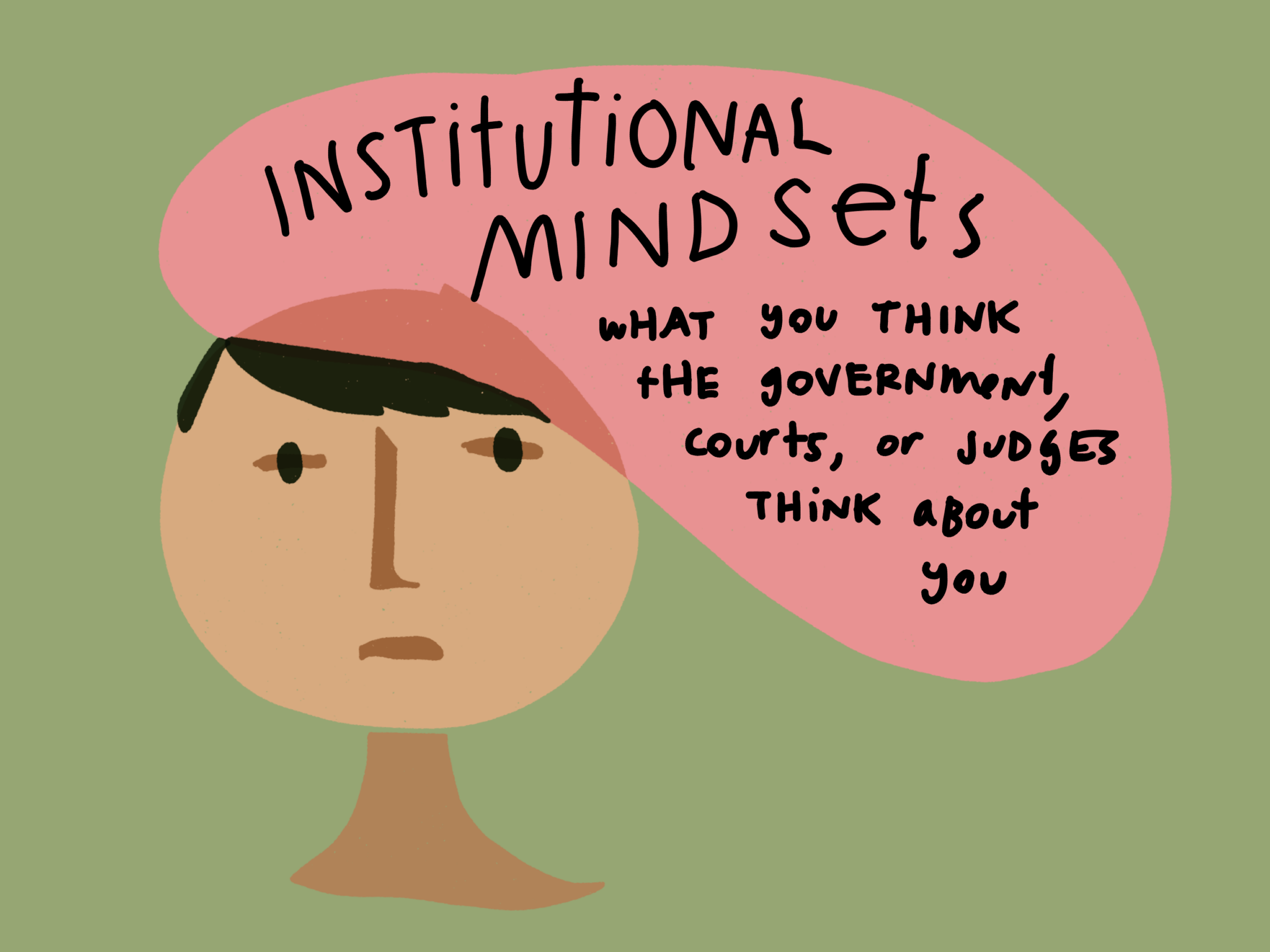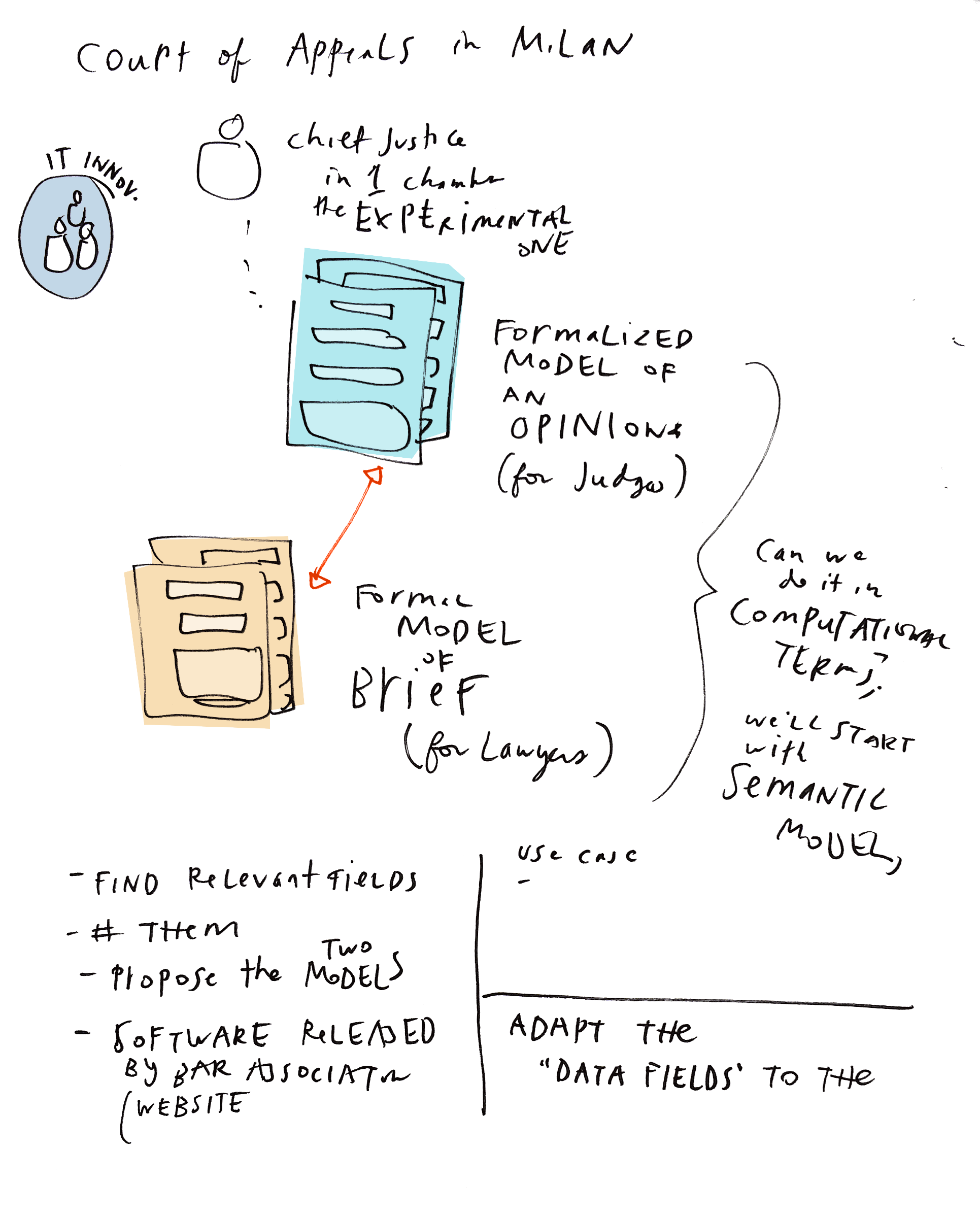Victor Quintanilla presented at Georgetown Law/American Bar Foundation on his research on people’s experience of courts. He’s measuring people’s social psychology while going through a justice journey – -including how they are treated by court and legal services staff & how it affects their sense of self.
One thing he highlighted was the notion of people’s Institutional Mindset.

When people think of institutions being exclusionary, inequitable, and punishing — then this government service of the courts can transform from something that is supposed to ‘resolve a problem between people’ — and now is about ‘threatening you’.
What kinds of court and services designs can we create, that would reduce this sense of threat & punishment? That would transform the institutional mindset, and users’ perception of the court’s institutional mindset, towards something more supportive, collaborative, and problem-solving?
This is especially important in the design of SRL-friendly courts, that can address the needs of people who don’t have lawyers while going through the justice system.




